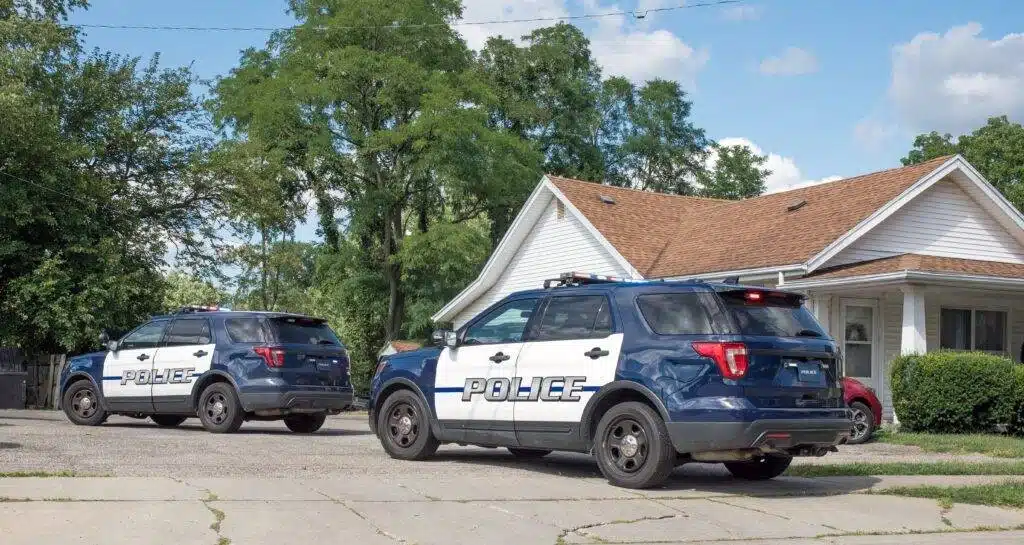How Is Domestic Violence Defined in Colorado?
Common Domestic Violence Charges in Colorado
- Assault: Domestic violence assault involves intentional bodily injury or the threat of imminent harm. Charges can escalate based on factors such as the severity of injuries, use of weapons, or prior convictions. This is perhaps the common scenario associated with domestic violence.
- Menacing: Menacing charges involve intentional threats or acts intended to place another person in fear of imminent serious bodily injury. This can include gestures, verbal threats, or brandishing weapons.
- Harassment: Harassment charges can arise from unwanted behaviors intended to distress or alarm another person. In a domestic violence context, this may involve repeated unwanted communication or actions that create a hostile environment.
- Stalking: Similar to harassment, stalking charges involve a pattern of conduct intended to cause fear or emotional distress. This can include persistent unwanted communication, following, or monitoring the victim’s activities.
- Criminal Mischief: Damaging or destroying the property of an intimate partner can lead to criminal mischief charges with a domestic violence sentence enhancer. This charge underscores the broad range of actions that can fall under the label of domestic violence.
Protection Orders in Colorado: Duration, Amendments, and Visitation
Are Domestic Violence Cases Fast-Tracked in Colorado?
This system means that there isn’t much time for a defendant to meet with an attorney before going to court. If you find yourself facing domestic violence charges, we encourage you to contact an experienced team of domestic violence lawyers in Denver or a surrounding county right away. A knowledgeable attorney will listen to the details of your specific case, explain your rights, and help you determine the best course of action. Pleading guilty is NOT always the best approach; a strong defense strategy can help you combat claims entirely.
Penalties for Domestic Violence Convictions
Domestic violence is a sentence enhancer, meaning that the penalties depend mostly on the underlying charge. Consequences are wide-ranging and can include fines, probation, counseling or treatment programs, jail or prison time, protection orders, loss of gun rights, and an impact on child custody.
How Long Do Domestic Violence Charges Remain on Your Record?
- The case was dismissed. These cases are sealable immediately.
- The case was heard in a municipal court. These cases have a three-year waiting period before they can be sealed, and you cannot pick up any new cases during that time.
Common Defense Strategies for Domestic Violence Cases in CO
- Challenging Evidence: A robust defense often involves scrutinizing the evidence presented by the prosecution. This can include questioning the reliability of witness statements or the admissibility of certain pieces of evidence.
- Proving Self-Defense: In cases where the accused acted in self-defense, establishing this fact is crucial. This may involve presenting evidence of the alleged victim’s prior violent behavior or threats.
- Questioning the Credibility of the Accuser: In some cases, the credibility of the accuser may be called into question. This could involve demonstrating a motive to fabricate allegations or highlighting inconsistencies in their statements.
- Seeking Counseling or Treatment: In certain situations, defendants may choose to proactively seek counseling or treatment to address underlying issues. This can be presented as a commitment to personal growth and rehabilitation.
- Negotiating a Plea Deal: Depending on the circumstances, negotiating plea deals for reduced charges or alternative sentencing may be a viable strategy.
Navigate Domestic Violence Laws in Colorado with Confidence
If you are grappling with the far-reaching implications of domestic violence charges, MBS Law can help. By entrusting your case to our legal team, you can work towards a fair and just resolution. In the face of uncertainty, we provide not just representation but a pathway to reclaiming control over your narrative and securing the best possible outcome. Get in touch today.













